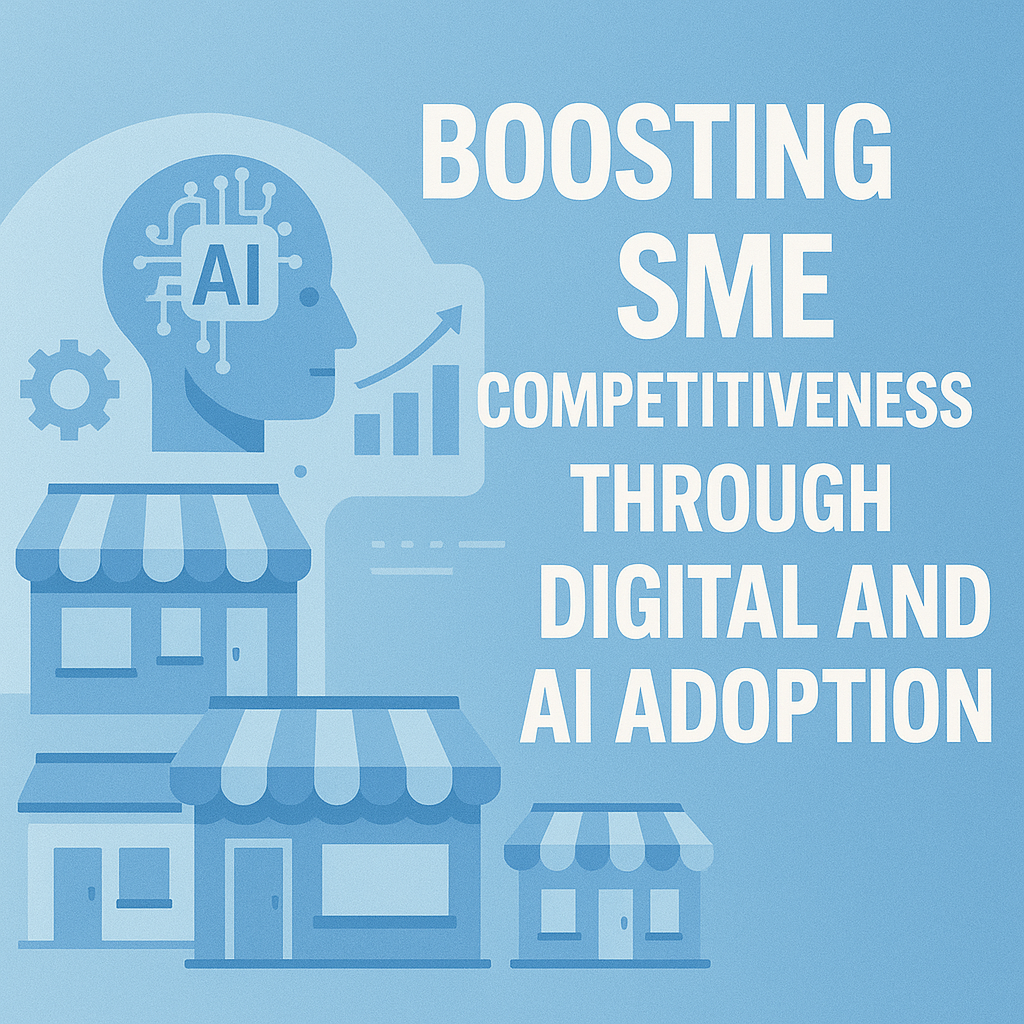Delivered at the OECD D4SME High-Level Roundtable – Paris, April 2025 by Mr. James Vincent
Digital tools and AI promise enormous potential for transforming SME productivity. Yet today, this potential remains largely untapped.
Unlocking the Most Transformative Applications
Across sectors, three areas stand out as immediate game-changers for SMEs:
-
AI-powered automation – streamlining administrative tasks, invoicing, and internal communications
-
Predictive analytics – enhancing demand forecasting, inventory management, and cash flow optimization
-
Intelligent customer engagement systems – driving personalization, automating follow-ups, and improving marketing returns
These technologies are no longer aspirational. They are real, affordable, and accessible. According to McKinsey research (2023), businesses adopting AI report 20–30% productivity gains in key operational areas. Yet a significant adoption gap persists.
The Reality SMEs Face
OECD data (2023) reveal that only 33% of SMEs across member countries currently use any AI-related tools. The gap is even wider among micro-enterprises (under 10 employees), which represent the majority of businesses in Europe.
A 2024 survey by the European Investment Bank found that while 68% of SMEs recognize digitalization as crucial for their future, only 29% feel on track with implementation.
From my work with SMEs, three recurring barriers stand out:
-
Complexity – Tools are often too complicated or not aligned with SME workflows
-
Overchoice – A crowded market of solutions, few tailored for SME realities
-
Insufficient practical training – Skills development that is often too theoretical or inaccessible
SMEs aren’t rejecting digital tools—they’re overwhelmed by them. We don’t need more white papers; we need real-world playbooks: clear use cases, step-by-step guides, and relatable success stories.
Lessons from the Field
Case Study 1: Rebuilding Trust in the Charity Sector
A UK-based national charity working with vulnerable groups initially resisted AI, driven by concerns over ethics, bias, and data privacy.
Our intervention included:
-
Deploying low-code automation tools for back-office tasks like donation receipts and volunteer scheduling
-
Running a bespoke workshop on responsible AI and GDPR compliance
-
Piloting a donor reporting system that generates summaries without storing sensitive information
Through transparency and hands-on application, we rebuilt trust and opened the door to further digital integration.
Case Study 2: Overcoming AI Skepticism in a Robotics Start-up
Ironically, a robotics spinout from a leading UK university was wary of integrating AI, citing concerns about source code integrity, explainability, and intellectual property risks.
We addressed these issues by:
-
Setting up sandboxed AI environments for risk-free testing
-
Providing training on open vs. closed-source AI ethics
-
Establishing internal standards for safe AI adoption
The result? They have now successfully implemented AI-driven predictive maintenance tools—something they once categorically refused.
Skills and Confidence: The True Catalysts
Too often, talent development for digitalization focuses on hiring “tech-savvy graduates,” sidelining the existing SME workforce.
Our approach has been different: unlocking the talent SMEs already have.
Over the past 18 months, I have developed university-accredited modules and bootcamps for SMEs, focusing on:
-
Practical, hands-on learning with real business data
-
Tool-agnostic, jargon-free delivery
-
Immediate application to real-world SME challenges
Each cohort has sold out, with participants leaving not just with knowledge but with working outputs: dashboards, forecasting models, and automation pipelines they built themselves.
The demand is clear—SME leaders want to stop being spectators in the digital revolution. They want to lead.
Policy Actions for an AI-Enabled Future
To truly boost SME competitiveness through digital and AI adoption, policymakers must act boldly across three areas:
-
Simplify access – Provide SMEs with fast, transparent funding, support, and toolkits—without red tape
-
Fund experimentation – Establish discovery grants and testbeds to allow SMEs to trial AI safely
-
Protect without paralyzing – Create clear, SME-friendly regulation that promotes fairness without imposing disproportionate compliance burdens
A Final Thought: Building a Digital Economy for the Many
We must shift our focus. Instead of designing AI policy for a few large players, we must create a digital economy that includes everyone.
Regardless of size, sector, or geography, every SME should have the opportunity to plug in, skill up, and scale with confidence.
Let’s make AI useful, usable, and universal.
Dr. Tarabishy asked Mr. James Vincent to share his speech and article with ICSB.
 James Vincent is the Founder of The Digital Resistance, a UK-based initiative focused on AI literacy, cyber resilience, and digital safety for SMEs, educators, and young people. He is also Co-Owner of the award-winning creative agency Hot Source Creative, where he works with small businesses, charities, and public sector organisations to help them adopt emerging technologies in practical and ethical ways.
James Vincent is the Founder of The Digital Resistance, a UK-based initiative focused on AI literacy, cyber resilience, and digital safety for SMEs, educators, and young people. He is also Co-Owner of the award-winning creative agency Hot Source Creative, where he works with small businesses, charities, and public sector organisations to help them adopt emerging technologies in practical and ethical ways.
A university lecturer and PhD candidate, James is currently researching AI adoption and digital transformation strategies for SMEs. His work bridges academia, policy, and real-world delivery—developing accredited courses, hands-on toolkits, and public engagement programmes that make AI accessible, relevant, and empowering for non-technical audiences.


